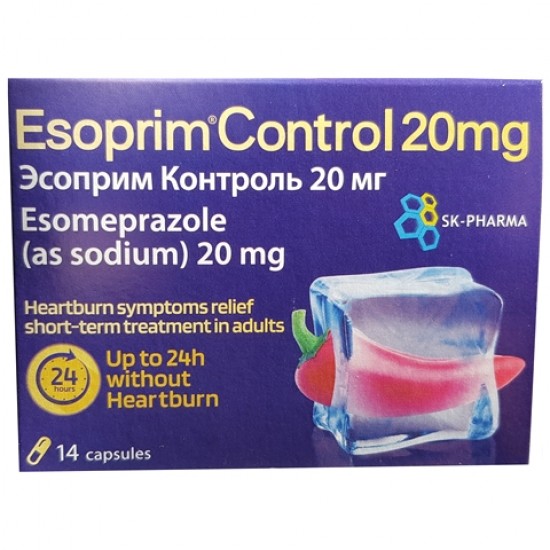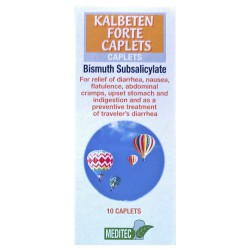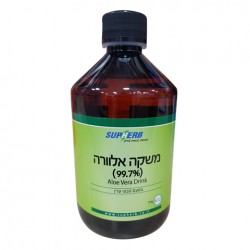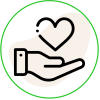Esoprim control

Esoprim Control is used in adults for the short-term treatment of reflux symptoms (for example, heartburn and acid regurgitation). 14 capsules.
Active Ingredients
Each capsule contains:
Esomeprazole 20 mg (as esomeprazole sodium).
Indications
Therapeutic group:
Proton pump inhibitors (gastric acid pump)
Esoprim Control contains the active substance esomeprazole. It belongs to a group of medicines called ‘proton pump inhibitors’. They work by reducing the amount of acid that your stomach produces.
Esoprim Control is used in adults for the short-term treatment of reflux symptoms (for example, heartburn and acid regurgitation).
Reflux is the backflow of acid from the stomach into the esophagus which may cause inflammation and pain in the esophagus. This may cause you symptoms such as a painful sensation in the chest rising up to your throat (heartburn) and a sour taste in the mouth (acid regurgitation).
Instructions
Swallow your capsule whole with half a glass of water. Do not chew, crush or open the capsule. This is because the capsule contains coated pellets, which stop the medicine from being broken down by the acid in your stomach. It is important not to damage the pellets.
You can take the capsule at any time of the day either with food or on an empty stomach.
The recommended dose is usually one capsule a day.
Do not exceed the recommended dose of one capsule (20 mg) a day, even if you don’t feel an improvement immediately.
Esoprim Control is not meant to bring immediate relief. You may need to take the capsules for 2 or 3 days in a row before your reflux symptoms (for example, heartburn and acid regurgitation) get better.
The treatment length is up to 14 days.
When your reflux symptoms have completely gone you should stop taking this medicine.
If your reflux symptoms get worse or do not improve after taking this medicine for 14 days in a row, you should consult a doctor.
If you have persistent or longstanding, frequently recurring symptoms even after treatment with this medicine, you should contact your doctor.
If you forget to take a dose, take it as soon as you remember it, on the same day. Do not take a double dose to make up for a forgotten dose.
This medicine should not be used by children and adolescents under 18 years of age.
Warnings
Do not use Esoprim Control if you are sensitive (allergic) to the active ingredient or to any of the other ingredients in this medicine.
Do not use this medicine if you have a known sensitivity to another proton pump inhibitor (medicines for treating ulcer-like symptoms, for example: pantoprazole, lansoprazole, rabeprazole, omeprazole).
Do not use this medicine if you are being treated with nelfinavir (a medicine to treat Human immunodeficiency virus [HIV]).
As a precautionary measure, you should preferably avoid the use of Esoprim Control during pregnancy. You should not use this medicine during breast-feeding.
If you are pregnant or breast-feeding, think you may be pregnant or are planning to have a baby, ask your doctor or pharmacist for advice before taking this medicine.
Before treatment with Esoprim Control, tell a doctor or a pharmacist if:
- You have had a stomach ulcer or stomach surgery in the past
- You are taking a treatment continuously for reflux or heartburn for 4 or more weeks
- You have jaundice (yellowing of skin or eyes) or severe liver problems
- You have severe kidney problems
- You are over 55 years old and have new or recently changed reflux symptoms or need to take a non-prescription indigestion or heartburn remedy treatment every day
- You have ever had a skin reaction after treatment with a medicine similar to Esoprim Control that reduces stomach acid
- You are due to have an endoscopy or a urea breath test
- You are due to have a specific blood test (Chromogranin A)
Tell your doctor immediately before or after taking this medicine, if you notice any of the following symptoms, which could be a sign of another, more serious, disease.
- If you lose a lot of weight for no reason
- If you have problems or pain when swallowing
- If you get stomach pain or signs of indigestion such as nausea, fullness, bloating especially after food intake
- If you begin to vomit food or blood, which may appear as dark coffee grounds in your vomit
- If you pass black stools (blood-stained faeces)
- If you have severe or persistent diarrhoea; esomeprazole has been associated in the past with a small increased risk of infectious diarrhoea
- If you get a rash on your skin, especially in areas exposed to the sun tell your doctor as soon as you can, as you may need to stop your treatment with Esoprim Control. Remember to also mention any other ill-effects like pain in your joints.
This medicine should not be used by children and adolescents under 18 years of age.
If you are taking, or have recently taken other medicines, including non-prescription medications or dietary supplements, tell your doctor or pharmacist. This is because this medicine can affect the way some medicines work and some medicines can have an effect on it.
Do not take this medicine if you are also taking a medicine containing nelfinavir (used to treat HIV infection).
You should specifically tell your doctor or pharmacist if you are taking clopidogrel (used to prevent blood clots).
Do not take this medicine with other medicines that limit the amount of acid produced in your stomach such as proton pump inhibitors (e.g. pantoprazole, lansoprazole, rabeprazole or omeprazole) or an H2 antagonist (e.g. ranitidine or famotidine). You may take this medicine with antacids (e.g. magaldrate, alginic acid, sodium bicarbonate, aluminium hydroxide, magnesium carbonate or combinations of these) if needed.
Tell your doctor or pharmacist if you are taking any of the following medicines:
- Ketoconazole and itraconazole (used to treat infections caused by a fungus)
- Voriconazole (used to treat infections caused by a fungus) and clarithromycin (used to treat infections). Your doctor may adjust your dose of Esoprim Control if you also have severe liver problems and are treated for a long period of time
- Erlotinib (used to treat cancer)
- Methotrexate (used to treat cancer and rheumatic disorders)
- Digoxin (used for heart problems)
- Atazanavir, saquinavir (used to treat HIV infection)
- Citalopram, imipramine or clomipramine (used to treat depression)
- Diazepam (used to treat anxiety, relax muscles or in epilepsy)
- Phenytoin (used to treat epilepsy)
- Medicines that are used to thin your blood, such as warfarin. Your doctor may need to monitor you when you start or stop taking Esoprim Control
- Cilostazol (used to treat intermittent claudication – a condition where poor blood supply to the leg muscles causes pain and difficulty in walking)
- Cisapride (used for indigestion and heartburn)
- Rifampicin (used to treat tuberculosis)
- Tacrolimus (in cases of organ transplantation)
- St. John’s wort (Hypericum perforatum) (used to treat depression)
Please do not consider this information as an alternative to consulting your physician or pharmacist.
For further information on instructions for use, risks and side effects, please read the patient package insert and consult your doctor or pharmacist.
Read the patient package insert carefully before starting to take any medication.

















